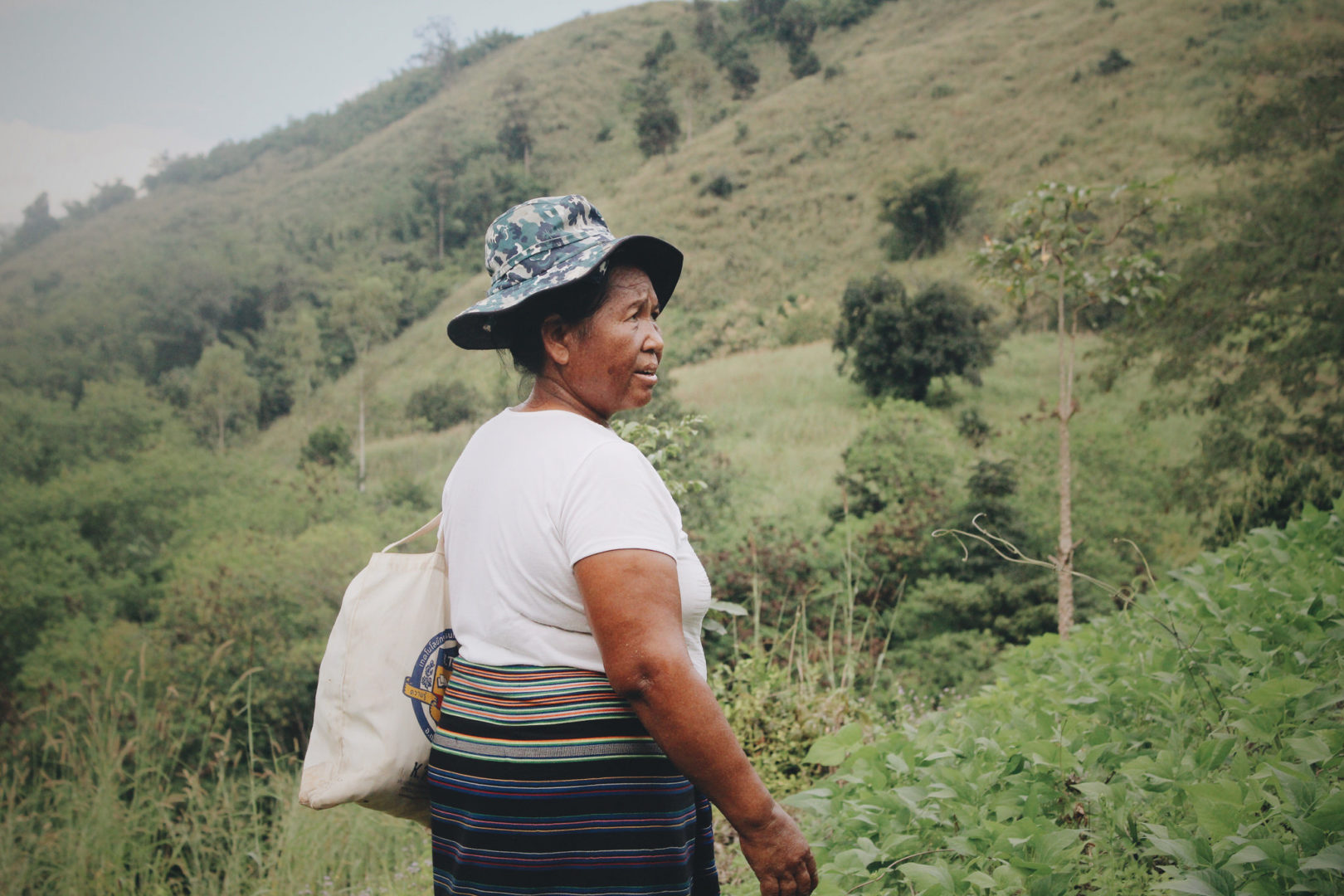Conflict drove her family from Myanmar into Thailand.
“We walked from our village into a border area, then into Thailand,” Na Kuh recounted to us. “There were two or three families together, with our children. It took us about a week to enter into that border area. While we were walking on the Burmese side, we had to watch carefully. We were at risk of being caught by the government army.”
That happened 42 years ago, but the memories are so vivid that Na Kuh still retells them in vivid detail.
“Between the government army and the rebel army,” she explained, “this created a very difficult situation.”
If she was caught, she would have been forced to serve in the army as a partner.
As the conflict began to wane, Na Kuh and her parents moved into Northern Thailand to try and begin new lives. This was a welcome change from the constant threat of violence and conscription that she had grown up with, but it was still far from an easy life.

Na Kuh surveys her home
The people of Na Kuh’s village faced problems from the surrounding Department of Forestry.
“When I first moved here,” she recollects, “I was fifteen. There was no school in this village and I couldn’t get an education. There’s still no school, but at least now there’s one in a nearby village.”
“This village wasn’t the same. There was just a small farming area and about twenty Lahu families nearby. There was another group here.”
One of the biggest challenges Na Kuh faced was relying on the forest for a living. Having to collect firewood, food, and raw materials from the surrounding forest led her community into disagreements with the Forestry Department.
“There can be a lot of problems with the Forestry People,” she noted. “If it was an area protected by them, we weren’t allowed to gather firewood or graze animals.”
Many of those regulations came about because of word spreading that the Lahu people caused harm to the environment. In order to gain more access to the forest, Na Kuh and her community would need to prove that this reputation was unearned.

Na Kuh and her husband Ja Buh live off the forest
How did Na Kuh overcome the problems she had with the Forestry People?
Here’s a clue: it involves trees.
Learn more by watching Na Kuh’s video below!
Na Kuh continues to dream of bigger and better things.
Na Kuh has seen her life improve and opportunities increase over the years. She knows she now enjoys a much better life compared to when she first arrived in Thailand, and that things can even further improve.
She believes that one day, her grandchildren will enjoy a much better life than she ever dreamed of.
"I have four grandchildren, now they are studying. When they grow up I want them to come back and help in the community. Maybe 1-2 of them can become church leaders. Another school teacher. Another one with a leadership role in the community. They won’t have to work as hard as I did, in the sun all the time.”
She also believes that as her community is empowered, they can gain even more economic independence and self-reliance. Not having to find work outside of her village is Na Kuh’s idea of freedom.
“My dream is for nobody from this village to have to go out and work outside. We want to work together within the village and help each other. We don’t want to see people have to find outside labor and work like slaves.”
Plant With Purpose seeks to empower communities like Na Kuh’s and to help them create better futures and opportunities for upcoming generations. To learn more about how we work with the hilltribes of Thailand to overcome similar obstacles, read our recent post about backyard gardens. Or to support hilltribes as they pursue brighter futures, consider becoming a Purpose Partner.

















